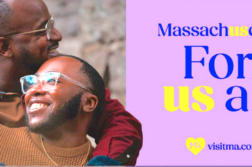IT IS FASHIONABLE in some intellectual circles to question the preeminent role accorded to the Stonewall Riots of June 27 to July 3, 1969, in the history of the GLBT civil rights movement. After all, transgender people rioted when police raided a favorite late night gathering spot, Compton’s Cafeteria, in San Francisco in 1966. The “homophile” movement had been active since the 1950 founding of the Mattachine Society, whose successes included stopping the New York City Police Department from entrapping gay men in bars in the mid-60’s. The first gay protest at the White House occurred in 1965, and on every July 4th for the rest of the decade a “reminder” gathering was staged at Independence Hall in Philadelphia. Stonewall was the culmination of the early struggle rather than a “big bang” that brought a movement into being ex nihilo.
But to place Stonewall into its proper historical context is not to diminish its significance. The summer of 1969 was the decisive point at which the GLBT community coalesced and forged a collective identity. The brazenness of the riots, which lasted nearly a week, was unlike anything that had ever happened in the history of homosexuality. The movement that followed Stonewall represented a sharp break with the past; the impact over time would transform the world in ways unimaginable to earlier activists. What’s more, scale of change over the ensuing forty years has been breathtaking. What, then, was so special about Stonewall?
First, it electrified the gay and lesbian activists who would lead a historic wave of community organizing, people like Marty Robinson, Craig Rodwell, Jim Fouratt, Martha Shelley, Karla Jay, Sylvia Rivera, and Arthur Evans. Within a month of the riots, the Gay Liberation Front (GLF) had been formed. Soon after, the Gay Activists Alliance (GAA) broke away from the GLF to focus specifically on civil rights issues. Unlike pioneering organizations in California such as the Society for Individual Rights, the GLF and GAA became models for community organizing in cities throughout the country. As the 70’s wore on, new groups proliferated in major cities and at colleges and universities. Stonewall turned what had been a cautious and invisible campaign aimed at improving the public image of homosexuals into a mass movement that would take the issue of gay rights into the mainstream of American life.
Second, Stonewall brought mass GLBT visibility. Previously there had been no such thing as “coming out.” Gays and lesbians lived in the closet, unseen. Stonewall marked the beginning of a decisive shift in consciousness, when gays and lesbians in ever increasing numbers affirmed their sexuality as healthy and natural. Coming out came to be seen as an ethical and political imperative. It became possible to demand a kind of respect that could never have been claimed by people skulking about in the closet.
Third, after Stonewall, a broad political program began to take shape. Raids on gay bars were met with spirited demonstrations until they stopped. The GAA launched a drive for laws to ban discrimination against gays and lesbians in employment, housing, and public accommodations. Politicians began campaigning for the gay vote. With the formation of the National Gay Task Force in 1973, the community began to organize nationally. Gay rights bills were introduced in the U.S. Congress.
In 1974, Elaine Noble became the first openly lesbian or gay person to be elected to public office, winning a seat in the Massachusetts House of Representatives. With a massive influx of young gays and lesbians in search of freedom, San Francisco elected a charismatic gay activist named Harvey Milk to its Board of Supervisors in 1977, and that catapulted him to national prominence as a voice for lesbian and gay rights. His martyrdom in 1978 was followed by the first National March on Washington in 1979, which attracted 100,000 people—numbers which would have been inconceivable a decade earlier.
Stonewall has taken on transcendent meaning because visionaries self-consciously invested it with a symbolic power that would spur community organizing on a vast scale. A critical mass of openly gay leaders rose up in the wake of the riots and propagated profound ideas that would remake the lives of gay people everywhere. Untold millions of people have since come out worldwide, and gay people are now a political force in many countries. As author Edmund White observed, Stonewall is the gay equivalent of the Storming of the Bastille. In 1969, our forebears confronted civil society and the course of history was changed forever.




